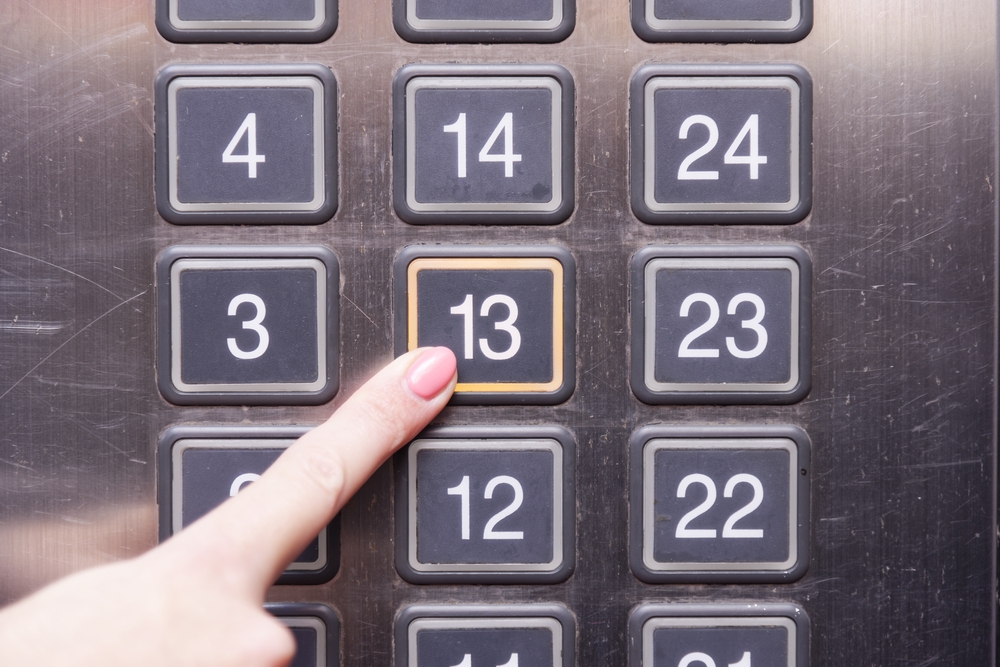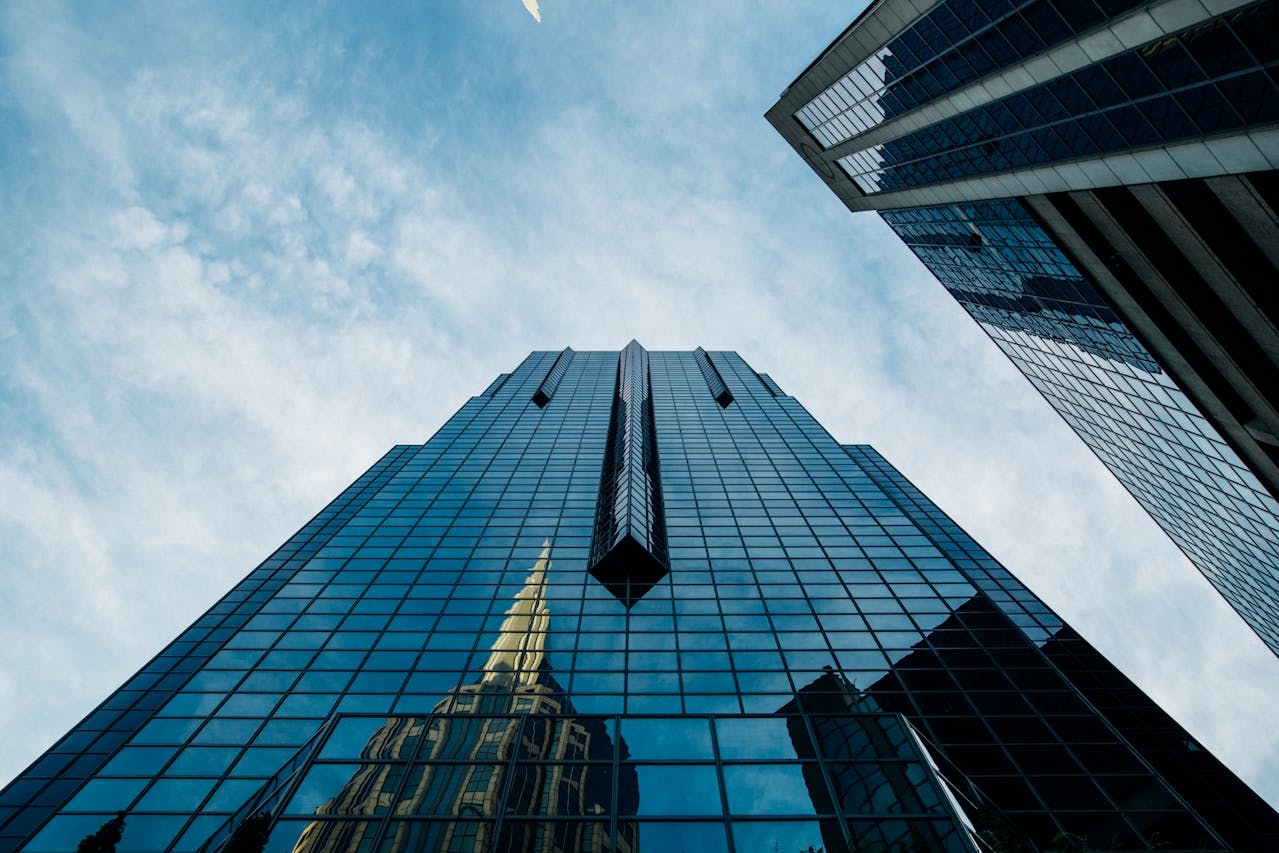The Mystery of Missing 13th Floors in Hotels
By Hamza Benhlima · 23. April 2024
Why is there no 13th floor in hotels?
The reason why hotels skip the 13th floor is rooted in the superstition of triskaidekaphobia, which is the fear of the number 13.
This article dives into the historical, cultural, and practical reasons behind skipping this floor, as well as the practical considerations that influence this architectural decision in modern hotels.
Key Takeaways
- Triskaidekaphobia significantly influences building design and customer behaviour in the hospitality industry, reflecting deep cultural superstitions.
- Global variations in superstitions, such as the avoidance of 4 in Asian cultures, show the impact of cultural beliefs on architectural practices.
- Although skipping the 13th floor in hotels and elevator panels has been a norm, shifts in cultural attitudes are leading some establishments to embrace the number, suggesting possible changes in societal norms and architectural conventions.
Triskaidekaphobia: The Fear Behind the Missing Floor
 triskaidekaphobia
triskaidekaphobia
The fear of the number 13 influences many aspects of life, from skipping the 13th row in aeroplanes to excluding the 13th floor in hotels.
It’s a fear that deeply affects both our conscious and subconscious minds, influencing decisions in ways we may not fully realise.
Whether it’s hotel staff avoiding the non-existent 13th floor or guests requesting room changes to dodge the dreaded number, the influence of triskaidekaphobia is very clear.
Origins of Triskaidekaphobia
Triskaidekaphobia has roots in religious and mythological traditions, including the Christian tradition.
The Last Supper, where Judas Iscariot, the 13th guest, betrayed Jesus, has long associated the number 13 with betrayal and misfortune.
But it’s not just Christianity that has cast a shadow on the number 13. Norse mythology also plays a role in superstition, with Loki, the god of mischief, adding to its negative connotations.
As the uninvited 13th guest at a feast, Loki wreaked havoc that ultimately led to the death of Balder, the cherished god, reinforcing the number 13’s reputation for bad luck and giving it such a bad rap.
Psychological Influence
Triskaidekaphobia isn’t just an interesting historical or cultural quirk; it has real-world implications.
For example, many hotels skip the 13th floor, directly reflecting the fear’s influence on design and business practices.
A Gallup poll highlighted this behavioural influence, showing a significant number of participants uncomfortable with the 13th floor, with some even requesting room changes to avoid it.
Building Design and Cultural Superstitions
 White Villa
White Villa
Superstitions have long influenced human behaviour, and architecture is no different. From avoiding the number 13 in hotel rooms to skipping the fourth floor in some Asian countries, cultural superstitions have a significant impact on architectural design and practices.
But, how do architects modify their designs to accommodate these beliefs, and how do these superstitions differ around the world?
Let’s explore further.
Architectural Adaptations
As skyscrapers started shaping city skylines in the early 20th century, architects faced the challenge of addressing the fear of the number 13.
They began excluding the 13th floor to cater to the superstitions and preferences of guests, a practice that continues today.
Fire concerns and tenant superstitions played a crucial role in this decision, with designers opting for creative solutions like labelling the 13th floor ‘M’ to avoid the number’s negative connotations.
Global Variations in Superstition
Superstitions around floor numbering are not limited to Western cultures. In some Asian countries, the floor number 4 is avoided because it sounds like the word for ‘death’.
Catering to the superstitions of its Asian guests, the MGM Grand in Las Vegas renumbered its floors to exclude the number 4.
Similarly, in multicultural cities like Vancouver, several floor numbers may be avoided to respect a variety of cultural superstitions.
The Business of Bad Luck: Hotels Skip the 13th Floor
 13th floor elevator button pushed
13th floor elevator button pushed
When it comes to hotels and the number 13, it’s more than just bad luck; it’s business.
The practice of skipping the 13th floor is a widely accepted norm in architectural and signage companies, influencing several aspects including:
- design plans
- guest experience
- staff morale
- property values
According to Otis Elevator Company, 80 to 90% of buildings choose not to have the number 13 in the elevator.
Catering to Guest Preferences
In the hospitality industry, ensuring guest satisfaction is crucial. That’s why hotels often go to great lengths to avoid alarming guests who might be uneasy with the number 13.
A 2007 Gallup poll showed that 13 percent of participants would be uncomfortable staying in a hotel room on the 13th floor.
Some of them would most likely ask for a room change, highlighting the economic impact of superstitions.
To enhance service and guest comfort, hotels deliberately avoid potential stressors like the inclusion of a 13th floor or assigning an unlucky room number.
Some hotels have even come up with innovative solutions, such as the Radisson Hotel in Winnipeg, which has renamed its 13th floor as the ‘pool floor’.
Impact on Property Values
Superstitions associated with the number 13 can deter potential buyers or tenants and potentially lead to a decrease in property value.
However, it’s important to recognize that there is no proven direct correlation between avoiding the number 13 in hotel floor numbering and property value.
Apartments on the 13th floor experience an 18 percent lower sale rate compared to those on other floors, indicating a specific sales impact on the entire floor.
These findings highlight the real-world implications of the superstitions surrounding the 13th floor.
Elevator Etiquette and the Missing Button
Between 80 to 90% of elevators in skyscrapers and the majority of large hotels do not have a button for the 13th floor.
Instead, they often use alternative designations with the floor labelled as:
- ‘Floor 12A’
- ‘Floor 14’
- ‘Floor M’ (for ‘mezzanine’)
- ‘Floor G’ (for ‘ground’)
But what role do elevators play in hotel design, and how do they contribute to the user experience?
The Role of Elevators in Hotel Design
In tall buildings like hotels, elevators are crucial for quick transportation and offer significant flexibility in designing and organizing the upper floors.
The arrangement and design of elevator control panels are crucial in deciding floor numbering, impacting how architects and designers name each level.
The practice of avoiding the 13th floor from elevator panels has sparked debates about the role of elevators in reinforcing or eliminating superstitious practices in hotel design.
User Experience
The absence of a 13th-floor button in elevators can leave a lasting impression on users. Guests often express surprise or curiosity when they notice the missing button.
Depending on individual superstitions and beliefs, the exclusion of the 13th floor can either instill a sense of unease or reassurance.
The lack of a 13th-floor button sometimes spurs conversations or storytelling among elevator passengers, adding a layer of unexpected social interaction to the elevator ride.
Beyond Superstition: Modern Perspectives on the 13th Floor
 tall hotel building
tall hotel building
While the superstition surrounding the thirteenth floor is deeply ingrained in many societies, modern establishments are challenging these fears, proudly showcasing their 13th floors as an expression of rationality or a quirky selling point.
This shift towards embracing the 13th floor reflects changing societal attitudes and a drive for efficiency.
But how are these shifts manifesting, and what does this mean for the future of the 13th floor?
Shifts in Cultural Attitudes
Contrary to the widespread fear of the number 13, more people are now embracing it.
They are actively integrating the number 13 into their lives, challenging long-standing stigmas and turning triskaidekaphobia on its head.
This shift in attitudes signals a broader cultural change in the modern world, one that could potentially reshape architectural design and societal norms, despite its bad rap.
Examples of Change
Despite prevalent superstitions, some establishments are challenging the trend and including a 13th floor. The Carlton Hotel in London, for example, has opted to retain the 13th floor.
Similarly, residential buildings like Albion in The Gulch in Nashville include a 13th floor, suggesting that the superstition holds less significance for permanent residences compared to hotels.
Iconic structures like the Empire State Building and the Flatiron Building in New York City retain their 13th floors, showing that the practice of avoiding the number is not universal.
Summary
In summary, the superstition linked to the 13th floor intertwines psychology, culture, business, and design.
The fear of the number 13, triskaidekaphobia, has significantly influenced architectural decisions in the hospitality industry.
However, cultural shifts and modern perspectives are challenging these superstitions, leading to a change in the inclusion of the 13th floor. As our perspectives evolve, our buildings will also adapt, reflecting our increasing embrace of the number 13.
Frequently Asked Questions
Why do hotels often skip the 13th floor?
Hotels often skip the 13th floor due to triskaidekaphobia, or the fear of the number 13, aiming to provide a comfortable experience for guests who may be uneasy with the number.
How does the fear of the number 13 impact property values?
The fear of the number 13 can potentially deter buyers or renters, impacting property values by decreasing desirability due to superstitions. There is no direct correlation between avoiding the number 13 in hotel floor numbering and property values.
Are there any buildings that include a 13th floor?
Yes, there are buildings that include a 13th floor, such as the Carlton Hotel in London and the Empire State Building in New York City.
How does the design of elevators contribute to the 13th floor superstition?
Many elevators in skyscrapers and large hotels do not have a button for the 13th floor, often using alternative designations like ‘Floor 12A’.
Are attitudes towards the number 13 changing?
Yes, there’s a gradual shift in attitudes towards the number 13, with more people and establishments embracing it. This reflects a changing perspective on the superstitions associated with the number thirteen.

